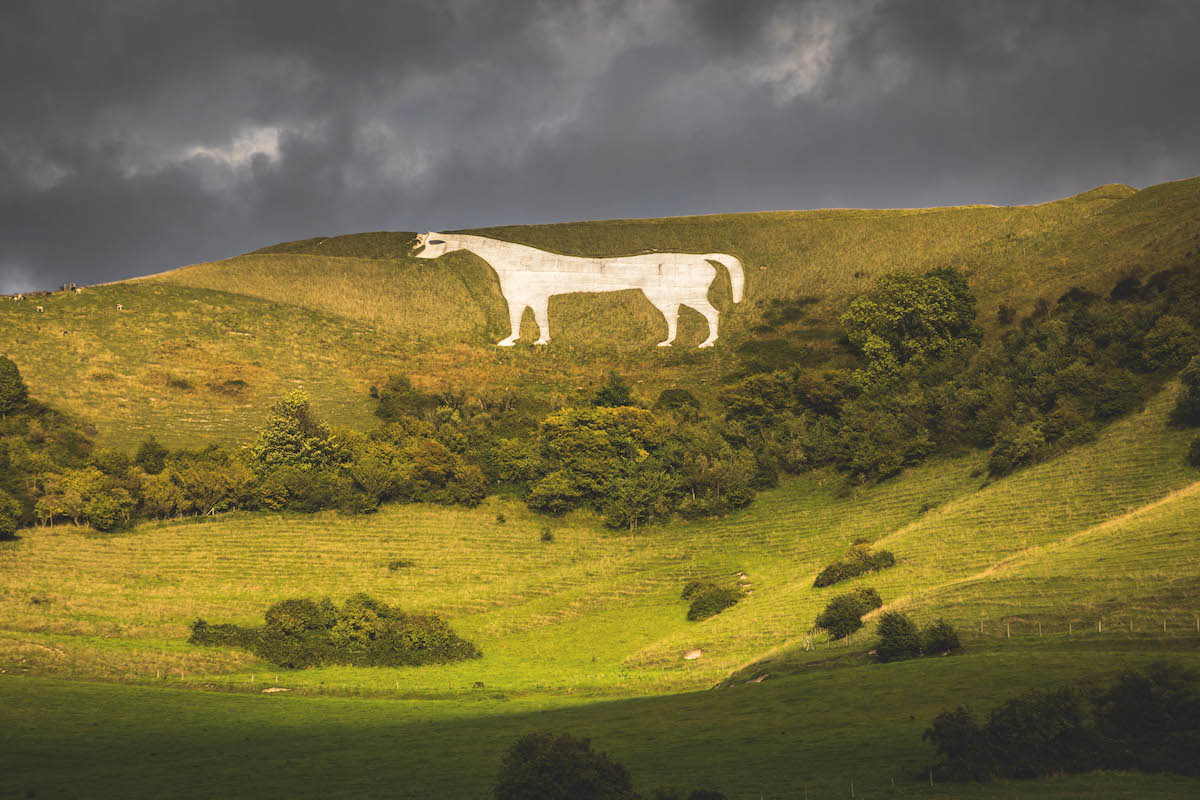Shoots are facing ruin and keepers out of jobs
The impact on rural livelihoods and rural life, following the recent general licence fiasco, is starting to be felt but BASC is fighting back, reports Emily Damment

A view of the Westbury White Horse, Wiltshire, England.
Hundreds of shoots face financial ruin and gamekeeper redundancies are stacking up following the change to general licence 43 (GL43) in late May. Introduced in 2021 following a legal challenge from Wild Justice, GL43 allowed the release of gamebirds on or near European protected sites. But under the new rules, shoots must apply to Natural England for an individual licence to release on or within 500m of a Special Protected Area (SPA).
Shooting Times is already aware that all shoots operating on Salisbury Plain, none of which are commercial, have been refused licences. Several of these shoots are used by servicemen and ex-servicemen, including the CEO of BASC, and all of them are now unable to operate. Shoots operating on the Bowland Fells, the Norfolk Brecks and in the New Forest have also been refused licences.
Tim Weston of the National Gamekeepers’ Organisation commented: “The area affected is enormous and includes anywhere within 500m of a chalkstream or a schedule one coastal area. In many cases, licences have been refused to protect endangered species, such as curlew in the Brecks, but curlew are only there because of predator control and land management undertaken by the keepers. Some of the licences granted state that the birds can only be released after 30 September, making them useless.”
The change to GL43 was designed to protect endangered species against avian influenza (AI), but an unnamed source has told Shooting Times that the individual licence they have been granted includes conditions unrelated to AI, including a clause that they cannot shoot lead. It also states that the shoot must allow an unnamed wildlife inspector on to its land at any time.
BASC is launching a judicial review against Defra on the basis that shoots had a legitimate expectation of operating their businesses under the licence as it stood and had no prior knowledge of the change, meaning they were unable to plan accordingly.
Senior Government officials have reassured ST that everything is being done to try to rectify the situation, but clearly time isn’t on our side. Finally, it is important to remember that it is a legal requirement for any shoot releasing 50 birds or more at any point throughout the season to register with the poultry register.








